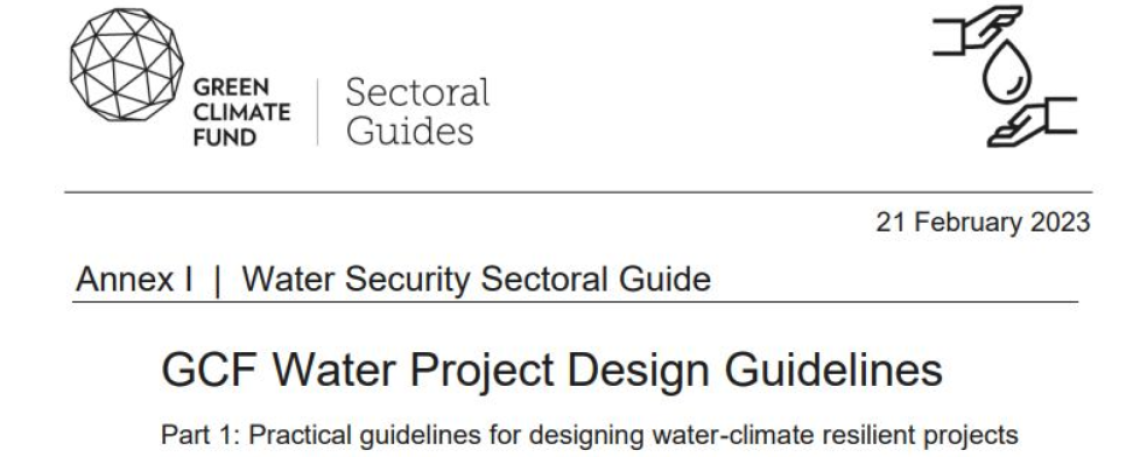CRIDA is a recommended approach for Green Climate Fund proposals
July 20, 2023
The Green Climate Fund (GCF) was created within the UN Framework Convention on Climate Change to assist developing countries financially in adaptation and mitigation practices to counter climate change. The fund has a US $45 billion portfolio including co-financing, in 140 countries.
Now those writing proposals for designing climate-resilient projects in the water sector have some practical guidelines, in the form of a Water Security Sectoral Guide.

As part of the GCF Water Project Design Guidelines, Part 1: “Practical guidelines for designing water-climate resilient projects” includes a step on “Dealing with uncertainty – adaptive management analysis”. This states, “The ultimate challenge is to make better informed decisions in water management under future uncertainties. Methods are available to make sure that the decision-making results into consistent, replicable, and accessible outcomes. The CRIDA {Climate Risk Informed Decision Analysis) approach might be employed to prepare such informed decisions”. CRIDA is an approach that implements decision scaling and bottom-up vulnerability approaches through collaborative stepwise planning procedures and Adaptation Pathways.”
The CRIDA manual was published by the International Center for Integrated Water Resources Management (ICIWaRM), UNESCO G-WADI, Deltares, the Alliance for Global Water Adaptation (AGWA), and others.
Aside from related approaches such as the World Bank’s Decision Tree Framework and Deltares’ Dynamic Adaptation Policy Pathway (the former developed in parallel with CRIDA and the latter composing one of its chapters), only one other approach is recommended in the section, and that is for water, sanitation and hygiene projects.
